In addition to our PhD in Nursing Science program, the UW School of Nursing offers several opportunities for enhanced training in specific areas of nursing science. Trainees in these programs are generally supported via fellowships.
Pre- and Post-doctoral training program in Biology to Society
In 2021, the Future of Nursing Report and the NINR Strategic Plan identified the need to develop the next generation of nursing scientists poised to play scientific and leadership roles in new initiatives that incorporate omics measures as well as multilevel modeling, data science and big data approaches to address medical and social determinants of health (SDOH). We provide rigorous interdisciplinary research training through a socio-ecological framework (B2S) to build nursing science aimed at promoting health across individuals, families, communities, and populations. we continue to provide training in symptoms and omics while expanding our emphasis on multilevel influences and outcomes including team science, data science, and multilevel approaches to issues of human health. These experiences include hands-on research experiences with interdisciplinary faculty mentors with active research programs.
This T32 is funded by the National Institute of Nursing Research (T32016913). The grant provides opportunities for pre-doctoral traineeships of 2 or 3 years and postdoctoral fellowships of up to 2 years to include specialized coursework and seminars and focused development in omics, systems science, and multilevel approaches.
To be eligible for appointment for this research training program, applicants must be US citizens or permanent residents. Pre-doctoral trainees must be accepted to the University of Washington PhD in Nursing Science Degree Program. Postdoctoral fellows must be qualified as a Registered Nurse and have completed a research doctorate in nursing science or related field by the time of appointment.
Pre-doctoral trainees
Amanda Hapenny, MSNAmanda Hapenny is a board-certified psychiatric nurse practitioner who earned her Master of Science in Nursing (MSN) from Vanderbilt University in 2013. Since then, she has gained extensive experience across various settings, including in community mental health centers, specializing in the care of adults with serious mental illness. She currently maintains a clinical practice in Seattle while pursuing her PhD in Nursing Science at the University of Washington. Her research there focuses on enhancing health outcomes for young adults with serious mental illness, with a particular emphasis on symptom science and implementation science. |
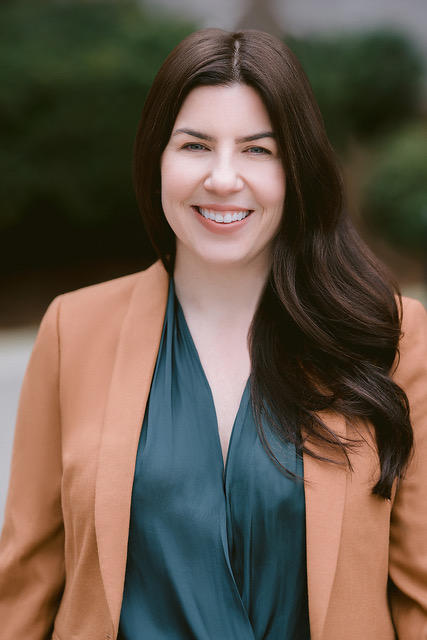 |
Hector Valdivia, MNHector completed his BSN at Walla Walla University in 2009 and his Master of Nursing (MN) degree at the University of Washington in 2016. As a pediatric Clinical Nurse Specialist (CNS), Hector found his passion for nursing research through his work on pediatric delirium in the pediatric intensive care unit (PICU). Hector’s research interests include delirium prevalence in non-ICU inpatient units, the relationship between nursing interventions to reduce the risk of delirium in PICU patients, and the association between biomarkers and delirium scores. By contributing to the current body of knowledge, Hector hopes to improve nursing care for hospitalized children. |
 |
Jessica Ziemek |
 |
Post-doctoral trainees
Angelita Utleg, MS, RNMs. Utleg has a BA in Biology, MS in Biomedical Science, an AS in Nursing, and a certificate in Biomedical & Regulatory Affairs. She has more than ten years of experience working in research laboratories with human samples. Her current research interest is to use a metabolomics approach to understand the relationships among symptoms, the human microbiome, and dietary lifestyle. Her dissertation is focusing on investigating the relationships among diet, fecal short-chain fatty acid (SCFA) metabolic profile, bacterial taxa, and GI symptoms in healthy women and women with Irritable Bowel Syndrome (IBS). SCFA profiles may play an important role in inflammatory response and pain in a subgroup of patients with IBS. Comparing the fecal SCFA levels of healthy women and patients with IBS may shed light on the mechanisms underlying the IBS symptoms. The goal of this line of research is to enable personalized dietary recommendations based on evidence-based data that could be tested in future clinical trials to reduce IBS symptoms. This work is funded by an Individual Kirschstein NRSA from NINR F31NR018794. |
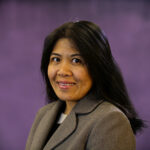 |
Caeli Malloy, PhD, RNDr. Malloy received her PhD in Nursing Science at Indiana University School of Nursing in 2024. Her dissertation work explored self-management behaviors and symptom clusters in adolescents and young adults with inflammatory bowel diseases (IBD) including Crohn’s disease and ulcerative colitis. Dr. Malloy has been actively involved with the IBD community for years and volunteers annually with the Crohn’s and Colitis Foundation’s Taking Steps Walk to raise funding for IBD research. She is passionate about improving health-related quality of life and outcomes in young people with IBD. In her postdoctoral fellowship, Dr. Malloy has focused on investigating factors that contribute to sleep disturbance and fatigue in this population, as well as patient and family preferences for symptom management. Her work will facilitate the development of a tailored symptom management intervention targeting poor sleep and fatigue in adolescents and young adults with IBD. |
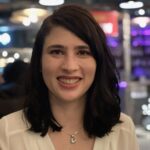 |
Alumni
Jonathan Auld, PhD, RNDr. Auld received his PhD in nursing science from Oregon Health & Science University, and Masters in Science degree and clinical nurse leader certification from the University of Portland. His career goal is to become an influential nurse scientist with an innovative and productive interdisciplinary program of research dedicated to understanding the interaction between heart failure symptom biology, patient behaviors, and patient outcomes. A central aim of his research is to elucidate how symptom biology and the patient response to symptoms in people with heart failure differ in order to develop more targeted and effective interventions. Dr. Auld received RIFP grant funding for his research activities during his post-doctoral fellowship. He completed his post-doctoral training in May 2020, and is now a tenure-track Assistant Professor at the University of Washington School of Nursing. He was awarded a K23 in September 2020 “Symptom Biology After Heart Failure Hospitalization” to continue this line of inquiry. |
 |
Eliana GillDr. Gill completed her PhD in Nursing Science at the University of Texas at Austin in 2022. Working with Dr. Christopher Goss and the Cystic Fibrosis Research Translation Center, she is presently examining pulmonary exacerbations, antibiotic use, and outcomes in persons with cystic fibrosis. |
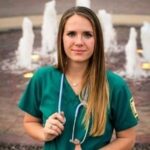 |
Fatemeh ChoupaniDr. Choupani’s research focuses on the epigenetic and genetic factors associated with obesity and cardiovascular disease and intersections with social determinants of health. She is currently an Assistant Professor at Seattle University. |
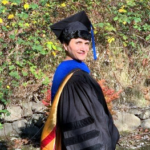 |
Karl Christie Figuracion, MSN, ARNPDr. Figuracion completed her PhD in Spring 2003. Her dissertation was funded by the Jonas Nurse Scholars Program, ITHS TL1TR002318, and multiple foundation grants and used radiomics approaches to evaluate the association between environmental factors and cerebral atrophy among brain tumor survivors. She is now a postdoctoral fellow at the Fred Hutch Cancer Center on the Biobehavioral Cancer Control and Prevention Training Grant (T32). |
 |
Elizabeth FrazierElizabeth’s research interests are understanding the biomarkers associated with atrial fibrillation symptom expression and symptom variability. She is particularly interested in understanding the factors that contribute to gendered differences in atrial fibrillation symptom burden. Elizabeth completed her BSN at the University of Arkansas in 2010 and her Master of Science in Nursing Education from Duke University in 2020. Elizabeth’s passion for improving the burden of cardiac arrhythmias stems from her clinical experience in critical care and the cardiovascular intensive care unit. In 2023, Ms. Frazier was awarded an F31 predoctoral fellowship (F31NR020833) to study “Differences in Women and Men with Atrial Fibrillation. |
 |
Jonika Hash, PhD, RNJonika Hash, PhD, RN, completed her PhD in Nursing Science at the University of Washington in 2017 and completed her post-doctoral fellowship in Winter 2020. Her research involves sleep health among young children and their parents experiencing adversity. She explores how sleep health relates to adversity, social-emotional development, and biomarkers and on promoting the health and wellbeing of children and their parents, particularly those in underserved communities. She received foundation research funding from Sigma International “Sleep health knowledge, attitudes, beliefs, and practices among underserved mothers with a history of prenatal depression” while a post-doctoral fellow. She is now a tenure-track Assistant Professor at the University of Washington School of Nursing. |
 |
Hyejeong Hong, PhD, RNDr. Hyejeong Hong received her PhD in Nursing at Johns Hopkins University, and she earned her master’s degree in Family Nurse Practitioner at the University of Illinois at Chicago (UIC). Her dissertation work focused on developing a prediction model of aminoglycoside-induced hearing loss among multidrug-resistant tuberculosis (MDR-TB) infected individuals in South Africa. Her research interest is tuberculosis susceptibility, bioinformatics, and global health. She expanded the work she completed as a doctoral student by pursuing a postdoctoral fellowship on the Omics and Symptom Science T32 training program at the University of Washington, Seattle, supported by the National Institute of Nursing Research (T32NR016913). As a postdoctoral fellow, Dr. Hong has had the opportunity to study host-pathogen interactions and genetic control of the innate immune response to Mycobacterium tuberculosis (Mtb) infection. The goal of her current project is to identify mechanisms by which some individuals resist Mtb infection. Her clinical practice as a primary care family nurse practitioner encompasses health promotion, disease prevention, health maintenance, counseling, patient education, diagnosis and treatment of acute and chronic illnesses. Dr. Hong is currently an Assistant Professor- Tenure Track at the University of Pennsylvania. |
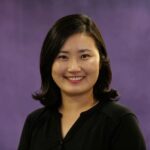 |
Sabrina MangalDr. Mangal completed her PhD in Nursing Science at Columbia University in 2020 followed by a post-doctoral fellowship at Will Cornell Medicine. She began a second postdoctoral fellowship at UW in 2022 where she is working with Drs. Jonathan Auld and Cindy Dougherty. Her work is focused on return of data to patients with cardiovascular disease emphasizing health literacy and numeracy. |
 |
Sarah Martha, PhD, RNDr. Sarah Martha received her BSN and PhD from the University of Kentucky, College of Nursing, and holds a BS in Biology from Portland State University. Her primary research interest is in advancing our understanding of the pathology of acute ischemic stroke (AIS) and the trajectory of recovery in order to improve patient symptoms, cognitive and functional outcomes, and quality of life. Her passion for AIS research emerges as a result of her professional and academic background, blending her experiences in neurosurgical intensive care nursing with her training as a bench scientist. Dr. Martha’s dissertation research focused on understanding neuroinflammation and pathology relating to AIS outcomes in rodent models and patients. In 2018, she was selected to participate in the National Institute of Nursing Research Summer Genetics Institute. Currently, her research explores the potential of metabolomics for precision health in AIS pathology and associated symptoms and outcomes. Dr. Martha was awarded a K23 in 2021 from NINR to further her research efforts in lipidomic mechanisms of symptom development following stroke. She is currently an Assistant Professor- Tenure Track at the University of Illinois-Chicago. |
 |
Yvette Rodriguez, BSN, RN |
|
Farah SchumacherFarah Schumacher earned her BSN at Pacific Lutheran University in 2014, and has a background in progressive/critical care and procedural nursing. As a bedside nurse, she has had many mentors who sparked her curiosity and dedication to adhering to evidence-based best practices, which led to a new interest in how research directly affects treatments and patient outcomes. While at the University of Washington, Farah intends to focus her research on the relationship between stroke risk and PTSD, particularly in victims of violence and minority populations. |
 |
Alexi Vasbinder, BSN, RNAlexi Vasbinder, BSN, RN completed her BS in Psychology from the University of Michigan in 2015 and her BSN from Michigan State University in 2016. Her research focuses on one of the most commonly reported symptoms in cancer survivors, fatigue. Radiation is hypothesized to cause fatigue through pathways of inflammation; however, the mechanisms driving long-term fatigue (LTF) after treatment has ceased, is less clear. For breast cancer survivors, radiation can also cause reductions in heart function, which can produce LTF. Evidence also supports the role of oxidative stress in LTF. Given multiple pathways are likely involved in LTF in patients receiving radiation, biomarkers targeting different mechanisms may provide greater insight into the mechanisms leading to LTF and future interventions. In her dissertation, Dr. Vasbinder used samples from the Women’s Health Initiative (WHI) Life and Longevity After Cancer (LILAC) funded by an individual NRSA from NINR 1F31NR018588 as well as multiple foundation grants. Following completion of a post-doctoral fellowship at the University of Michigan, Dr. Vasbinder returned to UW in 2023 as an Assistant Professor-Tenure Track. |
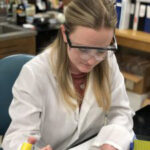 |
Samantha WindersDr. Winders completed her PhD in Nursing Science at the University of Florida in 2022. She completed her postdoctoral fellowship in 2023 focused on examining factors influencing sleep among persons with Inflammatory Bowel Disease. She now has a career as a Medical Editor. |
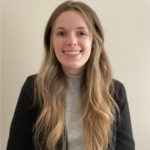 |
Linda Yoo, BSN, RNLinda Yoo, BSN, RN, completed her BSN at the University of Texas at Austin in 2018. As an undergraduate student, Linda found her passion for nursing research and academia through her work as a nursing honors student, a Junior Fellow, the president of UT Nursing Students’ Association, and a co-founder of the UT Health Advocacy Student Coalition. Linda’s research interests are tracking the progression of Inflammatory Bowel Disease (IBD) through inflammatory biomarkers, exploring interventions key to maintaining remission in IBD, and understanding the effects of sleep on IBD symptoms. By contributing to the current body of knowledge, Linda hopes to improve the quality of life for those with IBD. Her dissertation is focused on self management strategies that address biological and socio-ecological factors for IBD patients. She was awarded an F31 in 2023 to investigate “Sleep-Wake Cycles of Individuals with IBD” including the potential association between IBD-related fatigue and disease activity and sleep (F31NR020426). |
 |
Tao Zheng, MN, RNTao Zheng started his nursing education at North Seattle College where he received his Licensed Practical Nursing and Registered Nursing degrees. With a passion for higher education and professional development, he then received his BSN degree from Olympic College in 2012 and his MN from the University of Washington Tacoma in 2014. Clinically, Mr. Zheng has worked in the cardiothoracic intensive care unit and clinical cardiology. In his previous position as a Clinical Nurse Educator at the University of Chicago Medicine, Mr. Zheng was heavily involved in nursing research and evidence-based practice projects. He is interested in symptom science among patients and caregivers in the advanced heart failure population, particularly in individuals living with mechanical circulatory support devices. For his dissertation, Zheng plans to focus on fatigue and sleep-related impairment and discovering interventions to promote positive patient and caregiver outcomes in this population. Mr. Zheng was selected as the 2021-22 Magnuson Health Sciences Scholar. He successfully competed for an individual F31, funded by NINR to complete his dissertation work (F31NR019924). |
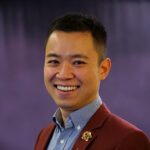 |
All application materials for the PhD in Nursing Science Program need to be submitted by December 1.
In your application materials to the PhD in Nursing Science Program, please denote in the Research Focus statement section of the application that you would like to be considered for the B2S Program.
Post-doctoral applicants
For more information about the B2S Training Program, please contact either of the co-directors Dr. Margaret Heitkemper (heit@uw.edu) or Dr. Cynthia Dougherty (cindyd@uw.edu).
We accept applications for postdoctoral scholar-fellows on a rolling basis.
Applicants should provide:
- A cover letter explaining what they hope to gain from a postdoctoral fellowship, including research interests and goals and how they align with the training provided in this T32
- A copy of their current CV
- One to two samples of scholarly writing (e.g., journal articles, essays)
- Three letters of recommendation. These letters should be sent electronically directly to the training program directors from the recommender (not from the applicant) and should speak to the applicant’s scholarly abilities, areas for growth, and future potential
Send all application materials electronically to Dr. Cynthia Dougherty at cindyd@uw.edu.
Pre- and Post-Doctoral Training – Research in Nursing & Global Health (RiNGH)
Global health is a multi-disciplinary field that aims to improve health equity for individuals, families and populations. Research in this field recognizes that health issues transcend national borders and seeks to understand public health problems, inform health interventions, optimize health services and systems, and promote health. Within the United States, innovative global solutions and approaches can be adopted to address local health concerns.
The Research in Nursing and Global Health (RiNGH) training program, funded by the National Institute for Nursing Research (T32 NR019761) and coordinated by the school’s Center for Global Health Nursing and the Office of Diversity, Equity and Inclusion, prepares junior scientists with knowledge and skills to advance global health equity through team-based, interdisciplinary research. This training grant offers pre-doctoral traineeships and post-doctoral fellowships of up to 2 years to support enhanced education, scholarly mentorship, and career development.
To be eligible for appointment for this research training program, applicants must be US citizens or permanent residents. Pre-doctoral trainees must have been accepted to the University of Washington PhD in Nursing Science academic degree program. Post-doctoral fellows must have completed a research doctorate in nursing science or related field by the time of appointment and hold a bachelors or higher in nursing.
- Review application materials and instructions
- Applications are now open. If you are applying to the PhD program, please indicate in your Research Focus statement section of the application if you would like to be considered for the RiNGH Program. Other applicants should submit the above application materials by March 15th, 2025. Note: This coming year is a renewal year, so we cannot guarantee more than one year of funding at this time.
- Before submitting an application, we encourage inquiries first. Please e-mail pkohler2@uw.edu
- Application materials must be submitted via e-mail to pkohler2@uw.edu
Applicants should provide:
- a cover letter explaining what they hope to gain from a postdoctoral fellowship, including research interests and goals and how they align with the training provided in this T32.
- a copy of their current CV
- 1-2 samples of scholarly writing (journal articles, essays)
- 3 letters of recommendation. These letters should be sent electronically directly to the training program directors from the recommender (not from the applicant) and should speak to the applicant’s scholarly abilities, areas for growth and future potential.
All application materials need to be sent electronically to Dr. Pamela Kohler, RiNGH Training Program Director, (pkohler2@uw.edu).
For more information about the RiNGH training program, please inquire with RiNGH Training Program Director, Dr. Pamela Kohler at pkohler2@uw.edu and Jillian Pintye jpintye@uw.edu
Predoctoral Scholarship in Gerontological Nursing
The de Tornyay Center for Healthy Aging offers a scholarship for students pursuing a PhD in Nursing Science with an emphasis in gerontological nursing. Recipients will receive full tuition for autumn, winter and spring quarters with a small stipend or salary for up to two years.
Ph.D. applicants who are accepted for admission will be considered for the de Tornyay Center Predoctoral Scholarship in Gerontological Nursing and notified of this offer in their acceptance letter.
Ph.D. program applicants are encouraged to discuss their specific area of interest in gerontological nursing when they complete the online PhD application.